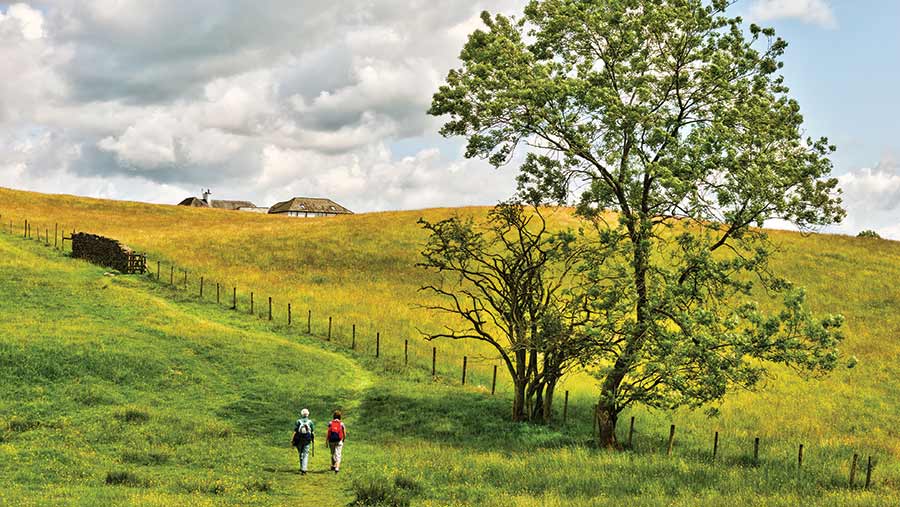Labour seeks wider public access, but not full ‘right to roam’
 © Kevin Eaves/Adobe Stock
© Kevin Eaves/Adobe Stock Labour appears to be backing away from a more widespread “right to roam” policy for England that would have seen the public given far greater access to farmland than is currently the case.
A report in The Guardian newspaper this week suggested the Labour Party had committed a U-turn and was now advocating a more “responsible approach” to access to the countryside, with plans to publish a new White Paper on access to nature.
See also: Should people have the right to roam in England?
Responding to the article, a Labour spokesman denied the party had ever been committed to a “Scottish-style” right to roam.
But it did want to ensure that people from every background had “the opportunity to enjoy our great British countryside”.
It is estimated that only 8% of England currently has full open access, including coastal paths, moorland and common land.
‘Responsible access’
The Country Land and Business Association (CLA) has been lobbying against any right to roam for years, pointing out that there is already a vast network of footpaths, bridleways and byways for the public to walk on.
CLA president Mark Tufnell said a right to roam policy would have been disastrous for farming, wildlife and the environment, as creating a “free-for-all” would destroy crops and delicate habitats.
He therefore welcomed Labour’s reported position, promising to work closely with the party to properly define “responsible access”.
Tim Bonner, chief executive of the Countryside Alliance, also described the new Labour approach as “sensible”.
“There is room for everyone who wants to access the countryside to do so through our existing network and that is something we are very keen to promote,” he said.
‘Right way forward’
While the Labour position falls short of a full right to roam, the walking and access group the Ramblers welcomed plans to produce a White Paper on access to nature as “the right way forward at this stage”.
Ramblers head of policy James MacColl said: “Today’s comments must be enshrined in the party’s manifesto so that new legislation can be introduced to tackle the many barriers that prevent so many from connecting with nature as part of their day-to-day lives.
“It should include expanding the freedom to roam, stronger protections for the path network, improved access for disabled people, and creating green routes in towns and cities.”
Campaign group Right to Roam also welcomed Labour’s continued commitment to extending public access to the countryside, albeit without the Scottish “right to roam” approach.
“In our view, a clear and comprehensive approach to access, which is already the norm in Scotland and Scandinavia, is better for the public and better for farmers,” a spokesman said.
“It is simpler to enact, easier to communicate and enjoys more public legitimacy.
“As many farmers appreciate, public access itself is rarely the problem – it’s public understanding and compliance.
“We therefore need a model which fixates less on the ‘where’ and more on the ‘how’.”
